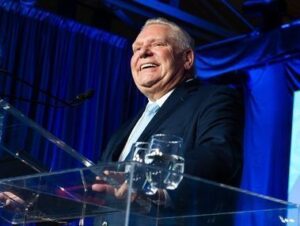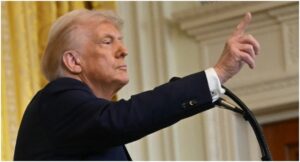Deputy President of the Senate, Senator Ike Ekweremadu, has identified double standard and lack of tenacity in holding governments and leaders accountable as the major reasons for poor governance in Nigeria.
Ekweremadu said this at the 30th Priesthood Ordination anniversary of the Bishop of Nike Diocese, Church of Nigeria (Anglican Communion), Rt. Revd. Evans Ibeagha, in Enugu on Sunday.
A statement on Sunday by his Special Adviser on Media, Mr. Uche Anichukwu, quoted his as saying this while delivering the anniversary lecture titled ‘Social Contract Between Political Leaders and Citizens: The Imperatives of Participatory Democracy for Nation Building.’
The Deputy Senate President, who was represented by the President, Ohanaeze Ndi’gbo, Enugu State Chapter, Mr. Alex Ogbonnia, called for more consistency by the religious leaders, civil society and social crusaders in their opposition to bad government policies and actions, irrespective of the individuals or party in power.
He said, “It is sad that many critics who led street protests against policies of the last administration, such as the attempt to remove fuel subsidy with elaborate palliative, made a volt face when fuel subsidy was totally removed by the current administration without any iota of palliatives for Nigerians.
“Those who criticised the last administration over what they termed hardship in the land and high exchange rate of about N198 to 1 United States dollar have suddenly gone mute when the real hardship is staring the nation people in the face, while exchange rate has more than doubled.
“But, if we are consistent in holding government accountable on behalf of the people, then, no government will feel so comfortable that it will take the people for granted or run in exclusion of their ideas, feelings, and inputs.”
Ekweremadu, however, stressed that citizen involvement could only be effective if it trickled down to the least layer of the society and produced larger benefits for the common people and the less privileged.
He also stated that people’s involvement in governance should not end with merely casting ballots. “If exclusive governance, which breaches social contract, is a disease, then election should be the ultimate cure by electing only those who are accountable to the people,” he added.







